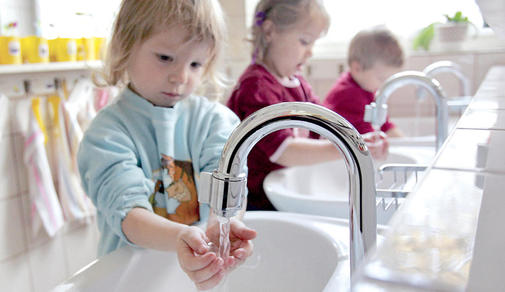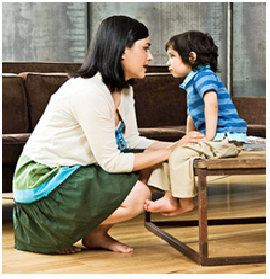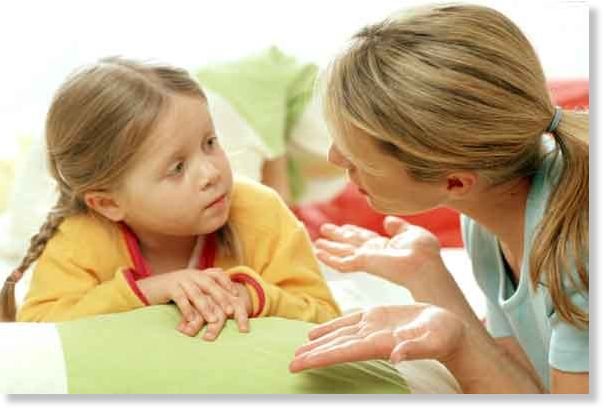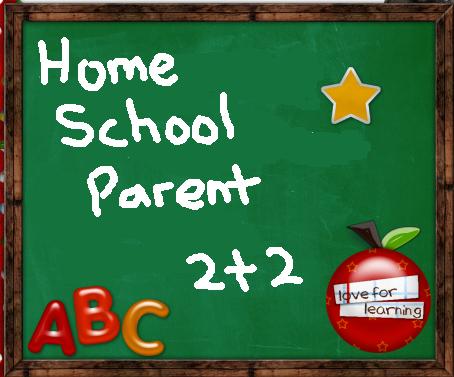 A good after school activity will provide lots of opportunities for the young to increase their level of understanding of complex concepts. This is true of recreational activities too. Learning to pitch a ball, or dance to a tune – regardless of the activity involved, the child should be encouraged to grapple with and conquer new concepts. This not only keeps boredom at bay by challenging the child, but also builds up his self-confidence. Development of academic, personal and social skills is one of the prime aims of an after school activity. As the skills develop, the child’s self-esteem also increases.
A good after school activity will provide lots of opportunities for the young to increase their level of understanding of complex concepts. This is true of recreational activities too. Learning to pitch a ball, or dance to a tune – regardless of the activity involved, the child should be encouraged to grapple with and conquer new concepts. This not only keeps boredom at bay by challenging the child, but also builds up his self-confidence. Development of academic, personal and social skills is one of the prime aims of an after school activity. As the skills develop, the child’s self-esteem also increases.Effective After School Activities
 A good after school activity will provide lots of opportunities for the young to increase their level of understanding of complex concepts. This is true of recreational activities too. Learning to pitch a ball, or dance to a tune – regardless of the activity involved, the child should be encouraged to grapple with and conquer new concepts. This not only keeps boredom at bay by challenging the child, but also builds up his self-confidence. Development of academic, personal and social skills is one of the prime aims of an after school activity. As the skills develop, the child’s self-esteem also increases.
A good after school activity will provide lots of opportunities for the young to increase their level of understanding of complex concepts. This is true of recreational activities too. Learning to pitch a ball, or dance to a tune – regardless of the activity involved, the child should be encouraged to grapple with and conquer new concepts. This not only keeps boredom at bay by challenging the child, but also builds up his self-confidence. Development of academic, personal and social skills is one of the prime aims of an after school activity. As the skills develop, the child’s self-esteem also increases.Clear Expectations Make Discipline Easier
Sometimes it can be very challenging to communicate anything with your child. Setting clear expectations regarding what’s acceptable behavior and what isn’t imperative to successfully teaching your child right from wrong. If the parameters are muddled or the child learns that in one situation the rules hold true yet in another situation the same rule does not, it makes for confusion and frustration on both sides.
Sit down with your child well in advance and line out the expectations and consequences of misbehaving or a misdeed. Make it clear that in no uncertain terms is there any room for negotiation at the time of the infraction, and that should such a behavior occur you intend to be firm in your discipline. Rules regarding your child’s safety, health or well-being should have no room for negotiation when being set or enforced. Other rules can be openly and honestly discussed with your child and an agreed upon action should be forged that both parents and child can agree upon. If necessary, make a contract between parent and child. Lay it all out in black and white, in language your child can clearly understand. For younger children, you might want to develop a good behavior chart within the contract, and for each week that goes by without any infractions being noted, a favorite or special activity might be earned. The connection between good deeds and special time with mom and/or dad might be just the currency they understand.
But all children need to understand that disciplining them is your way of teaching them what’s acceptable behavior and what isn’t. It may seem as though children fight rules and regulations, but they truly know that such parameters are meant for their well-being, health, safety, and enable them to grow into a mature person capable of making wise decisions.
Ready for the Worst- First Day of Kindergarten
If you are the kind of parent that plans ahead, then the first day of kindergarten will not take you by surprise. When the big day arrives, the clothes are all bought, the list the school gave you is complete, teachers conferences are done and you may have even used the last few months before school to help your little one bone up on the alphabet, on her numbers, shapes and colors so that step into a formal educational setting will not be such a shock.
It’s like an invasion in a way. You are the General and you are preparing your troops to invade a foreign land to achieve an objective. The difference is the foreign land is not necessarily hostile, it’s a kindergarten room. And the teacher, administration and even other students there on that first day not only don’t want you to fail, they want to be your team to help your little one do great. The other difference is your invasion force is not a seasoned team of soldiers, it is that sweet little five year old boy or girl with a slightly terrified look in his or her eye.
But like any good General, you do have to be prepared for the unthinkable. You may make a lot of good speeches about how” failure is not an option”. But any parent who does not think about what can go wrong and how you will prepare for it and respond is setting themselves up for a catastrophe in the event something doesn’t go perfectly. But if you are ready for the worst, then your child can still have a great first day at school and get around the problem that otherwise might have ended badly.
The first thing that springs to mind when it comes to accidents or something that might go wrong is with the wardrobe. In all the excitement and nervousness, if your child spills either on the way to school or during school and soils her garment to where it is not suitable for using the rest of the day, you might get that phone call to come and get your child.
You don’t want to have to take your child out of the classroom until it is absolutely necessary. You put so much time and effort into building up this big day that to your little boy or girl, if they have to leave the school during the day, it will seem like a tragedy even if it’s only for the day. The solution for the wardrobe problem is one you may have already thought of which is to send a change of clothes. By keeping emergency clothing at the school in your child’s locker at all time, it is always there for her to change into and not see a major disruption to her school day.
Another crisis that can come up at the last minute is the sudden emotional meltdown of your child. If she becomes hysterical with worry or overwhelmed by the newness of it all, it can be a serious issue if you in the drop off line and you need her to go on in to school. This is not at all unlikely even if you feel your child is not the kind of kid who melts down that easy. The build up to the day and all the new cloths and the excitement can suddenly change course and create an emotional train wreck as your child looks out of the car door at the school door she must go through to start her new life.
But by having a plan, you can even deal with this. Often such melt downs are temporary. You can pull out of the drop off line and park the car and comfort the child. Above all don’t make her feel badly. Then if she knows its ok, she might recover and go on in. Worst case – you walk her in. That is not a catastrophe at all.
Your child must learn to cope with crisis. It is as much part of learning as books and assignments. And if she takes her cues from you that there is no crisis that cannot be adjusted to and no issue that cannot be solved, that will be a source of comfort and strength on that first day of school and for every day thereafter.
Connect with Your Child but Don’t Overdo it
Successful Two-Way Communication with your Child
One of the most frustrating challenges we face as parents is communicating effectively with our child. Though we strive to open an honest two-way line of communication with our child, we become frustrated when it appears their attention isn’t solely on us or the conversation at hand. Yet we seem to find it’s perfectly acceptable to discuss things with them while reading the paper, folding clothes, or working on the computer and then are often left wondering when the lines of communication broke.
Children are by nature easily distracted and not always responsive to their environment. It is the responsibility of the parent to emphasize positive patterns of communication and ensure the child learns that ignoring communication is not acceptable. Early prevention, in the form of educating your child about the proper forms of communication, is the key to ensuring that the non-verbal agreement does not take hold. Teach your child by example. Remain completely and totally focused on them and the conversation at hand. Turn off the television; allow calls to go to the voicemail, or go in a room where there are no distractions.
Talk to your child, and explain to them in age-appropriate terms how they are communicating and why their method doesn’t work. Show your child how to communicate effectively, even when the questions are hard. Make yourself an active listener. Let them voice their opinion or side of the story and ask questions to ensure you understand their viewpoint.
Be constant in the manner in which you communicate with your child. Send the same message with each and every interaction. Allow your child to see that you will call their attention to those times that the unwanted behavior rears its ugly head.Kids will be kids and they will sometimes be distractive and non-communicative. You are the expert in knowing your child’s behavior and can best judge the improvement in their communications. The best way to ensure healthy communication patterns is to model positive communication skills.
Win 1-Year Supply of Brildiapers Prime for your Baby!
This is an effort based contest. You get 1 credit for participation and 10 credits for participation by a person you shared the contest with. Share with as many people as possible to increase your chances of winning.
NOTE:
Please confirm participation by clicking on the link sent to you by email after you fill in your details on the top right.
Social Concerns of Homeschooling
Social skills is an area of deep concern when it comes to homeschooling. Many critics point out that since man needs to hone his social skills, a homeschooling environment where social interaction is limited is detrimental to his growth and development. But studies have proved this wrong.Children put into the fiercely competitive school environments lack the confidence to hold a conversation. Such children show little genuine interest in the topic of conversation and don’t know how to interact with people of various age groups, especially their elders.
Children who learn at home are more aware of the implications and the purpose of their learning. They will ask intelligent questions and make accurate observations. Children begin their life by imitating their parents. Homeschooled children therefore pickup the sterling qualities they see in their parents. On the other hand, they are protected from the detrimental influences of their peers.
These children are thus better equipped with the tools necessary to face the world. The positive reinforcement that takes place in the homeschooling environment as opposed to being abandoned,
embarrassed or ignored in a normal school environment strengthens their self-esteem. Children turn out to be better balanced andwell-rounded as they progress into adulthood.
Training the Fussy Eater
 Toddlers can be fussy eaters who refuse to try new food atleast half of the time. Approximately half of all toddlers fit this description, so it is no wonder that food issues are a source of stress for parents.Establishing a healthy eating pattern is important to avoid problems such as obesity and eating disorders later in life. Various strategies can help your child accept a wider range of foods. It may be necessary to offer a food to your child as many as ten different times before they choose to eat it. The problem is, many parents get frustrated and give up before the fourth or fifth try.
Toddlers can be fussy eaters who refuse to try new food atleast half of the time. Approximately half of all toddlers fit this description, so it is no wonder that food issues are a source of stress for parents.Establishing a healthy eating pattern is important to avoid problems such as obesity and eating disorders later in life. Various strategies can help your child accept a wider range of foods. It may be necessary to offer a food to your child as many as ten different times before they choose to eat it. The problem is, many parents get frustrated and give up before the fourth or fifth try.
Try to make foods fun. Colorful foods like carrot sticks, raisins, apples, grapes, cheese sticks and crackers can all be fun and healthy choices for your growing toddler. Explain to them that eating good food is important so they’ll grow big and strong, and how it will help them run faster and play longer.
Children learn behaviors from their parents. If you restrict yourself to a narrow range of foods, your child will take notice and mimic your caution. Don’t limit your child’s food variety to only those foods you prefer. It may be that your child’s tastes are different to yours, and perhaps you are simply serving them foods they don’t happen to like. Try to set a good example and try a variety of foods in front of your child. It could motivate them to do the same.
 If your child seems healthy and energetic, then they are eating enough. If you are still concerned, keep an eye on how much food they actually eat over the day. Children tend to graze constantly, rather than restrict their eating to three meals per day like adults. You may be surprised how those little handfuls and snacks add up. For further reassurance, check your child’s growth and weight charts, or check with your child’s paediatrician.Try not to worry, and remember, that unless a child is ill, they will eat. Children are very good at judging their hunger and fullness signals. Try to stay relaxed about mealtime and offer your child a wide variety of foods, and most importantly, remember to set a good example by trying a wide variety of foods yourself. You may discover you and your toddler share a new found favorite food!
If your child seems healthy and energetic, then they are eating enough. If you are still concerned, keep an eye on how much food they actually eat over the day. Children tend to graze constantly, rather than restrict their eating to three meals per day like adults. You may be surprised how those little handfuls and snacks add up. For further reassurance, check your child’s growth and weight charts, or check with your child’s paediatrician.Try not to worry, and remember, that unless a child is ill, they will eat. Children are very good at judging their hunger and fullness signals. Try to stay relaxed about mealtime and offer your child a wide variety of foods, and most importantly, remember to set a good example by trying a wide variety of foods yourself. You may discover you and your toddler share a new found favorite food!
Health Needs and Kindergarten
One of the fears parents often have of sending their children off to kindergarten is the exposure to a public place where the protection of the home is no longer possible. It is true that when your child goes to school with other children, the opportunities for illness and contamination are much more frequent. But the value of being in school with others and the social and educational value mean that we as parents must prepare our children to begin to spend time in a public place and that we do all we can to help them stay healthy and safe each and every day.Part of preparing your child to stay healthy even in a public venue like kindergarten is to enlist the aid of your child’s paediatrician. She can make sure your kiddo is up to date on shots and that any vulnerabilities are well known. A good check up and getting all necessary shots before school starts will insure your child’s immune system is well equipped to deal with the additional exposure to germ
 But you can also teach your child good hygiene habits at home and engrain them in her lifestyle so they will stick with her even when she is at kindergarten and she doesn’t have you there to protect her. This includes good bathroom habits, an obsession with washing her hands as often as possible, being aware of others who are sniffing and who may not be taking good care of themselves to avoid contamination and using good table habits so the foods your child eats are clean and safe for consumption at lunch.
But you can also teach your child good hygiene habits at home and engrain them in her lifestyle so they will stick with her even when she is at kindergarten and she doesn’t have you there to protect her. This includes good bathroom habits, an obsession with washing her hands as often as possible, being aware of others who are sniffing and who may not be taking good care of themselves to avoid contamination and using good table habits so the foods your child eats are clean and safe for consumption at lunch.
Good lifestyle habits at home will benefit the child at school as well. This includes a well developed schedule of getting at least eight hours of sleep each day and a regular diet of all the major food groups, particularly fruits and vegetables as these foods will give your child’s body the defences it will need to ward off illness if there is an exposure to germs.
Good dietary habits will be something that is taught as well as enforced at home. You can send your child a lunch to assure that at least she is taking the right kinds of foods. But the best defence is to make sure your child is aware of her own nutritional needs as it pertains to resisting illness so she also eats well when getting food from the cafeteria and stays healthy and regular every day.You don’t want to send your child to school paranoid or afraid of other people. But some simple rules of how to interact with others in a way that is social but not risky should be part of your training as you raise the child. Just as you know not to eat after someone else using the same utensil, not to eat anything that has been on the floor or not to eat anything that you don’t know the origin of, these are basic health rules that children may not know if they are not taught. So be a conscientious parent and equip your child to avoid hazardous hygienic situations. Even if they are innocent dangers, they are dangers none the less.The health preparations for kindergarten includes things parents can control at home such as check ups, getting good sleep and nutrition and gong to school healthy and clean. But they also include things you teach your child so she can keep herself safe and healthy even in the middle of a large group of other kids. By giving her these skills from the first day of school going forward, you are doing your job as good parents to assure she is ready for school each and every day from kindergarten all the way through to college graduation.
Too Much Choice?
In the good old days when I was growing up in the India of the 70s and the 80s, we had very few career choices. You either chose science and became a doctor or an engineer, or took commerce and became an MBA, a CA or a banker. I don’t remember any of us bemoaning the lack of choices – most likely because there weren’t any, but also maybe we were too young and un-exposed to really know what we wanted?
Fast forward to our children’s generation, where they are faced with a bewildering number of choices. And Indian universities are still a little behind their western counterparts – here, the enormous range of courses a kid can study in college, and the ability to mix and match courses to create a unique degree of your own, is mind-boggling. As my son gets closer to going off to college, the brochures landing in my mailbox make my mouth salivate – wow! this college allows you to mix a minor in liberal arts with a major in engineering! That college has a wonderful co-op program, that helps you work and study from the second year itself!
But while I am drooling over these options, I see the opposite reaction in my son, and his many other friends. Faced with so much choice, they are bewildered and confused and don’t know what to choose. So in some ways they are on the other end of the spectrum from their parents – we had so few choices and they have so many – but on the other hand, it is the same conundrum – are the kids too young to be making career choices at this age?
There are various studies showing that too much choice confuses the consumer. One of the best books I have read is The Art of Choosing, by Sheena Iyengar. Her research shows that we can handle more than a few choices, but an overabundance can paralyze us.
So, what can we as parents do? For one thing, along with my son, I am doing detailed research on the various courses available, and how they will fit in with my child’s interests and abilities. So much has changed between our generation and our children’s that it is important we find out as much as we can about the various options. At the same time, education has become expensive, and the world intensely competitive, so it is also important to find out the career prospects and employability of these courses – this is something I find kids are too young to have a good perspective about. And again, because you as the parent know your child so well, it is important to ask the right questions to understand why your child is interested in a course – is it really his interest, or is it because all his friends are talking about it?
As parents, there is a strong a role we play in our children’s career choices, and it is important that we play it well. For more details on this, do our read the article, “A Parent’s Role in Career Choices,’ in our latest issue of ParentEdge. You will learn a lot!
Re-published with permission from the blog of ParentEdge, a bi-monthly parenting magazine that aims to expose parents to global trends in learning and partner with them in the intellectual enrichment of their children.
- « Previous Page
- 1
- …
- 53
- 54
- 55
- 56
- 57
- …
- 64
- Next Page »








